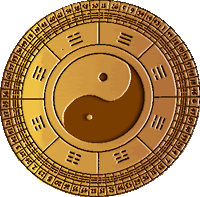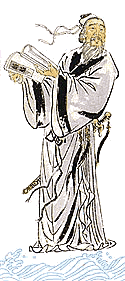
The I Ching ; also called "Book of Changes" is the oldest of the Chinese classic texts. It describes an ancient system of cosmology and philosophy that is at the heart of Chinese cultural beliefs. The philosophy centers on the ideas of the dynamic balance of opposites, the evolution of events as a process, and acceptance of the inevitability of change .
The I Ching is regarded by some as a system of divination. The book is structured as an 8x8 matrix of sixty-four hexagrams representing the states and the dynamic relationships of the eight elements, each represented by a trigram. Throughout China's region of cultural influence, scholars have added comments and interpretation to this work, one of the most important in ancient Chinese culture; it has also attracted the interest of many thinkers in the West.
Another view holds that the I Ching is primarily a Confucianist ethical or philosophical document.
Traditionally it was believed that the principles of the I Ching originated with the mythical Fu Xi . In this respect he is seen as an early culture hero, one of the earliest legendary rulers of China (traditional dates 2852 BCE-2738 BCE).

The I Ching has also been used for divination by ethnobotanist Terence McKenna. McKenna's interpretation and analysis of numerical patterns in the King Wen sequence of the I Ching has led to the development of his Timewave Zero computer program, which postulates that the ingression of novelty into human history can be calculated and predicted. This concept first took root in his entheogenic experiences shared by McKenna and his brother Dennis McKenna and documented in the book True Hallucinations.
sources: *Wikipedia I Ching *I Ching Divination
See Also